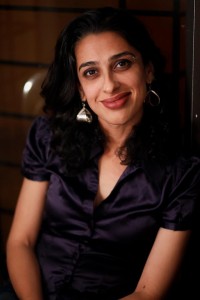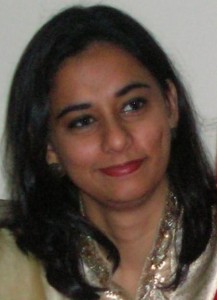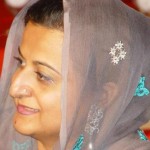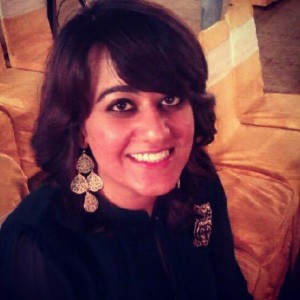The big questions
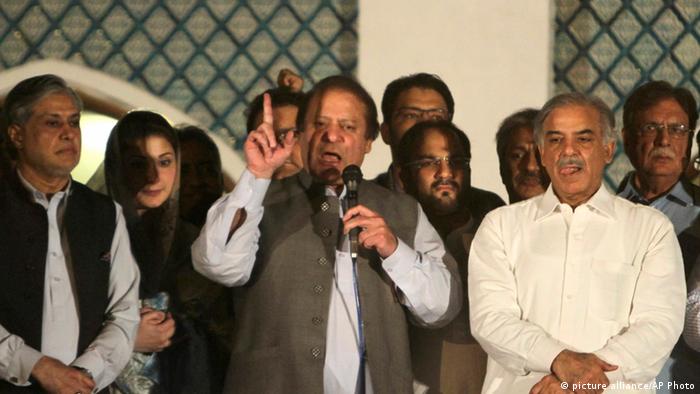 Former Pakistani Prime Minister Nawaz Sharif is set for his third term as the country’s prime minister. The economy is crippled, the people unhappy and a huge energy deficit reigns in the country. Islamic extremism has tarnished the image of the country in the world. Will Sharif be able to overcome the daunting tasks that lay in front of him? Will he able to do justice to the expectations of the women in the Pakistani society? Will he able to really bring about a change in Pakistan? WTO reporter Roma Rajpal asked five Pakistani women from varied backgrounds about their expectations.
Former Pakistani Prime Minister Nawaz Sharif is set for his third term as the country’s prime minister. The economy is crippled, the people unhappy and a huge energy deficit reigns in the country. Islamic extremism has tarnished the image of the country in the world. Will Sharif be able to overcome the daunting tasks that lay in front of him? Will he able to do justice to the expectations of the women in the Pakistani society? Will he able to really bring about a change in Pakistan? WTO reporter Roma Rajpal asked five Pakistani women from varied backgrounds about their expectations.
Women are way below in the hierarchy: Soofia
Soofia is an art photographer based in Islamabad. Her work mostly revolves around gender roles and their multiple interpretations. Her portfolio can be viewed on www.soofiasays.com. Like most Pakistanis she is hopeful but has her reservations. She told WTO, “No government has championed women’s rights as a priority, and I don’t expect this one to as well. The Nawaz government has been conservative in the past and has supported General Zia’s regime’s Islamization policies that do not support women or minorities as such.
We need a change in legal system as well as mindset (both for men and women) to give women the respect and status they deserve. Moreover, we are way below in the hierarchy of priorities and the primary challenges are energy, poverty and education. The Nawaz government has done a lot of infrastructural improvements, developmental and education work in Punjab in their last provincial government. I hope the work goes beyond loyal Punjab this time.”
Tougher penalties and better protection: Mariam Reza
Mariam is a chemistry teacher and college counsellor based in Karachi. She has a long list of things to do for Sharif’s government. “There is so much in the area of women’s rights that needs to be done. The new government needs to impose tougher penalties for sexual and physical assault, stop forced marriages or ‘traditional’ misogynistic practices, give better protection from harassment, it needs to recognize marital rape as a crime, allowing use of forensic evidence in rape cases, repeal the Hudood laws. A mother’s rights of child custody in case of divorce need to be protected. Pakistan needs more economic empowerment for women and the government should lay greater emphasis on women’s education.”
Nawaz Sharif lost the literate woman’s vote: Asma Badar
Asma is a public health expert based in Islamabad. “Nawaz Sharif is more into infrastructure, but the population’s problems go beyond that. There is an acute electricity shortage in the country. We are constantly plagued by terrorism and drone attacks. The country’s economy needs to be revamped. Education and health sectors need a lot of attention. So, let’s see what his government does. I also believe that he will definitely try something in the area of women’s rights as literate women refrained from voting him this time.”
Honestly, no idea where he stands on women’s rights: Sophia Ahmed
Sophia, a business associate based in Karachi strongly believes that Nawaz Sharif’s government will try harder to rise to the occasion. She told WTO, “I think there will be greater accountability at stake this time round both within the government and the people, making it difficult for the PML-N to skirt around the issues we face today. As far as women’s rights are concerned, honestly I have no idea where Sharif stands. He urgently needs to look into the issues along with the energy crisis, employment problem, rooting out the Taliban and most importantly revive the education system in the country.”
No hope for betterment: Zahra Sultan
Zahra, a housewife, is very sceptical about Nawaz Sharif’s government. She told WTO, “Sharif has served twice before as the prime minister and both his parliaments were dissolved because of alleged corruption, nepotism and incompetency. I do not think that his government this time can do any better to Pakistan. As far as women’s rights are concerned, he never promised to give any support so I do not hope for any betterment. My only hope is that his government looks at key issues like power shortage, the problem of terrorism, unemployment, the law and order situation and extreme poverty that prevails in the country.”
Women’s rights least on his agenda: Javeria Zaidi
Javeria, an engineer based in Karachi has almost no faith in Sharif that he will help improve the situation of women in Pakistan. She told WTO, “Sharif will obviously work for the development of Punjab like always. Women’s rights are least on his agenda. I hope that he can work on Pakistan’s image in the world.”
Author: Roma Rajpal
Editor: Manasi Gopalakrishnan



